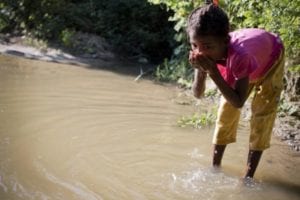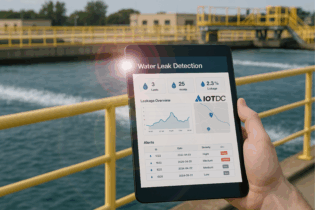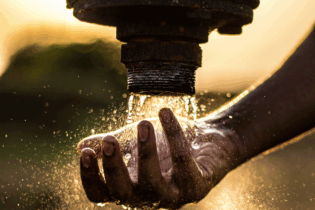
A young girl drinks water straight from a dirty stream in Bekalalao Village Morondavo, Madagascar. Photo: WaterAid/Kate Holt
“The evidence is clear: children’s health and future potential are compromised when they have no choice but to grow up without clean water, decent toilets and good hygiene practices. Even if children survive their dangerous early years, repeated bouts of diarrhoea early in life are likely to leave them stunted, leaving South Africa and Africa as a whole deprived of a new generation of great leaders, thinkers and athletes,” says WaterAid’s Head of Region for Southern Africa, Robert Kampala.
“World leaders have promised to end malnutrition and deliver water and sanitation to everyone, everywhere by 2030. They must keep their promises – one cannot be met without the other.” Last year, world leaders agreed a new set of Global Goals on sustainable development. Goal 2 is a commitment to end hunger and malnutrition by 2030. Goal 6 promises adequate, equitable access to clean water, sanitation, and hygiene for everyone everywhere by the same date. Almost one year on from the goals being signed into effect, WaterAid’s is calling for water, sanitation and hygiene to be prioritised to improve child health and end malnutrition. Leaders and prominent current and former Olympians will meet in Rio on 4 August, ahead of the 2016 Olympics, to bring attention to the importance of good nutrition. “In my work promoting sport among children, the difference between children who have clean water, decent toilets and good hygiene at home, and those who don’t, is very clear,” says Zambian athlete, Olympic medallist and WaterAid supporter Samuel Matete. “What is most upsetting is that typhoid, cholera and malnutrition are preventable, and we have the tools to do this. Water is life, and sanitation is dignity, and we must deliver these to everyone, even the world’s poorest, as part of the race to end malnutrition.”





